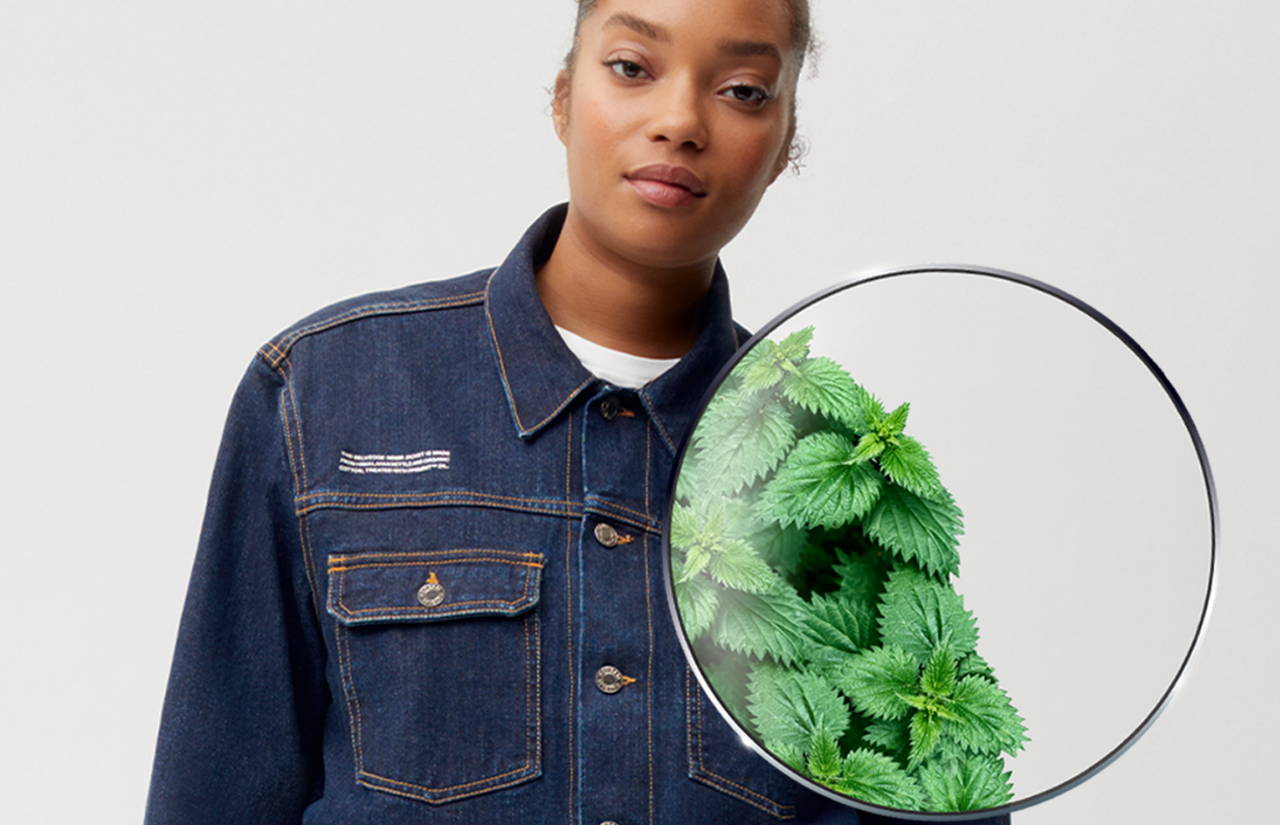Pangaia is a New York-based sustainable fashion brand. Instead of using resource-intensive cotton, Pangaia just launched a new collection of jeans and jackets made from a new denim blend containing nettle fiber. The new Pangaia Denim collection features three products: pan-sex straight leg denim pants, and 90’s vintage-inspired jacket, and high-rise straight-leg jeans made for women. The range, marked between $225-275, is now available on the brand’s website in both a rinse and mid wash.
The new denim collection is sustainable as it is based on natural fibers. Nettle is grown in the wild and does not require any additional irrigation or chemicals to grow. Pangaia says that nettle fiber is powerful, yet it is soft to the touch because of its hollow core. It is also breathable and durable. The highlights of the new collection are:
- Composition: 18% Himalayan nettle, 18% cotton, and 64% organic cotton.
- Sewing thread: 100% lyocell cellulose.
- Indigo: A closed-loop dye system to make its process more water-efficient.
- Buttons: Non-galvanized, stainless-steel buttons that can be recycled.
 By adding nettle into its line-up, Pangaia hopes to shift away from using resource-intensive materials like cotton. Even though it is a natural, non-synthetic, and plastic-free material, the sheer amount of cotton used by the fashion and textile industry makes it unsustainable. It is a crop that uses up vast amounts of land and water.
By adding nettle into its line-up, Pangaia hopes to shift away from using resource-intensive materials like cotton. Even though it is a natural, non-synthetic, and plastic-free material, the sheer amount of cotton used by the fashion and textile industry makes it unsustainable. It is a crop that uses up vast amounts of land and water.
The new denim is there to solve the issues in denim recycling and landfill. When it does reach its end of life, because the collection is entirely bio-based, plastic-free, and contains no synthetic blends, it will be much easier to recycle. It can also be repurposed and upcycled into something new.
As for how Pangaia’s nettle denim fares against traditional denim for water waste, the brand says that its manufacturing process strives to be as environmentally friendly as possible. It is produced in partnership with Candiani Mills in Italy, a company that uses “advanced technology” to minimize energy and water consumption when it spins the fabric.



